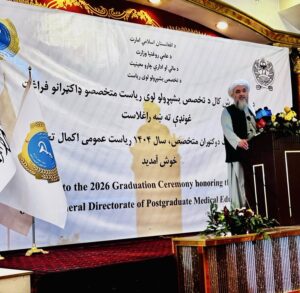Salam Watandar’s conversations with 21 Afghan young individuals, including 11 girls and 10 boys, reveal that family attitudes toward their children’s goals and choices have a profound impact on their motivation and abilities, sometimes making it impossible for them to achieve their dreams.
The youths interviewed for this report shared that their families’ views—fueled by fears of foreign cultural influence, concerns over failure, and traditional societal beliefs—have created barriers to their aspirations.
According to these young people, their families’ perspectives have made it more difficult for them to reach their goals, often leading to social and cultural limitations.
While they expressed gratitude for their families’ support, the interviewees noted that restrictive family attitudes have unintentionally stifled creativity, limited critical thinking, hindered risk-taking, and eliminated growth opportunities.
Among the 21 interviewees, 11 faced limitations in the workforce, while 10 struggled in the realm of education and career selection due to their families’ viewpoints.
Farzad Haris, 23, from Kabul, said that due to his family’s desire for him to secure a formal job, he abandoned his plans to start his own business. “I wanted to open a restaurant and pursue my goals through it,” he explained. “But my family believed it wasn’t possible. They would say, ‘Look at what happened to others who tried it’—they don’t consider that if a young person follows a goal, they might succeed.”
Haris added that many families, without considering their children’s abilities or growth paths, weaken their ideas and diminish their motivation with traditional beliefs. “Families insist their children study fields that will guarantee a 7,000-8,000 AFN monthly salary, and at that point, the youths’ ideas are crushed by these beliefs.”
Dina, a 24-year-old from Bamyan, shared that although she aspired to work in the military, her family’s perspective prevented her from pursuing that dream. “In Afghanistan, most men joined the military, and women didn’t. I wanted to go down that path, but my family limited me, saying that it would be taboo-breaking, and that such a job wasn’t appropriate for me.”
Others in the report, who were unable to pursue their desired fields of study due to their families’ and society’s traditional views, mentioned that excessive concern from their families about their future has undermined their sense of independence.
Maryam, a 22-year-old a resident of Kabul, revealed that her family disapproved of her pursuing a degree in journalism. “My brother and mother strongly opposed it, saying I shouldn’t study this field. They were concerned that after I graduated and worked in the media, people would say, ‘That girl works on TV, and they’ll talk about us.'”
These Afghan young people added that family attitudes and excessive concern have caused them to change their life paths and slow their personal growth.
In Afghanistan’s prevailing culture, young people often feel compelled to sacrifice their own aspirations to meet their families’ desires, sometimes leading to psychological pressure.
Farhad Habibzada, a resident of Balkh, said, “At times, I had to choose between my own wishes and those of my family and society. This caused me problems. The pressure from my family to secure a high-paying job has caused me anxiety and fear.”
Shayesta, a resident of Baghlan province, noted that differing views within her family and society have limited her choices. “Women are the most vulnerable group in society, and what causes stress and anxiety in young people are the wrong and undesirable beliefs that steer them away from their goals.”
Psychologists emphasize that limiting career choices, family pressures, societal expectations, and a lack of access to job opportunities contribute to depression and hopelessness among young people.
Mohammad Baluch, a psychologist based in Kabul, said, “Family obstacles, especially in authoritarian households, have negative mental health effects on the family members and adolescents, leading to depression, anxiety, mood disorders, and more.”
Saif al-Islam Khaibar, spokesman for the Ministry of Promotion of Virtue and Prevention of Vice (MoPVPV) of the Islamic Emirate, said the ministry is working to address the social and familial issues faced by young people.
“We are working to raise public awareness, focusing on encouraging youths to pursue careers in science and professions. All officials are working diligently to facilitate their work, helping them gain professional and academic independence.”
Family attitudes towards work, education, and career choices can hinder the growth of young people, diminishing their motivation for progress and achievement.






